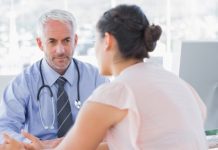he head of the World Health Organization has claimed that the end of modern medicine as we know it may be imminent.
The WHO chief has made the dark prediction that increasing antibiotic resistance could mean that a scratch on the knee could prove fatal, that routine operations become impossible and that we could be facing the end of modern medicine as we know it.
A Global Antibiotic Crisis
Microbes are rapidly evolving and becoming increasingly resistant to antibiotics it is being seen. The apprehension is that common disease could become untreatable and that routine operations could carry risk of infections.
Medications or drugs used to treat TB, AIDS and malaria, even routine treatments for minor cuts and wounds could become useless.
For instance in Britain there has been an increase in cases of blood poisoning by 30% in the years between 2005 and 2009.
Whereas antibiotic resistance was about 1% till the beginning of the century, it is now as high as 10%.
It is a bug called carbapenem-resistant K. pneumoniea which was first detected in Greece, which then spread to Austria, Italy, Hungary and Cyprus that is among those causing concern.
According to Margret Chan, director of the WHO, there is an increasing resistance to antimicrobial medications in Europe as well as the rest of the world.
As of now there are no real substitutes for antibiotics that do not work. Alternatives to these traditional antibiotics could be more expensive, longer duration treatments and even perhaps more toxic treatments.
What can be done to avoid antibiotic resistance?
There are two principal ways to avoid antibiotic resistance – firstly doctors have to avoid prescribing these drugs until they are really necessary. Secondly the antibiotics that are fed to animals routinely and used in food production should be curtailed.
As patients, what we can do to avoid antibiotic resistance is to take medicines as prescribed and to complete the whole course of antibiotics as prescribed. The medications shouldn’t be stopped just because we feel better.
Secondly we shouldn’t self medicate. Don’t use any leftover medications; discard them.
Don’t delay starting treatment because this can allow bacteria to multiply.
Take recommended vaccines and practice good hygiene to prevent disease and infection.
If your doctor is of the view that antibiotics are not necessary in a given case, don’t pressure your doctor to prescribe them. If you take antibiotic needlessly they can be toxic for the body as well.














